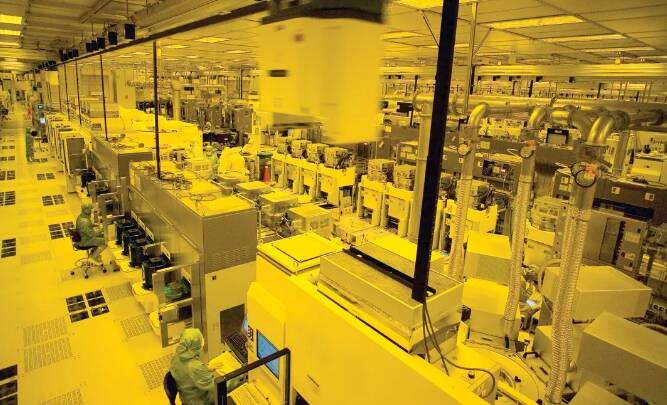According to a DigiTimes report, TSMC quotes 30% more for semiconductor chips made in the U.S. than those made in Taiwan.
(Reuters)
[Financial Channel/Comprehensive Report] According to a DigiTimes report, TSMC quotes 30% more semiconductor chips manufactured in the United States than in Taiwan, because building a fab in the United States is much more expensive than building a factory in Taiwan.
TSMC has started negotiating with customers on orders and pricing for two overseas factories, and mass production is expected to begin by the end of 2024.
Industry insiders believe that TSMC’s N4 and N5 technology chips produced in the United States will increase in price by 20% to 30%, which is higher than Taiwan’s, while Japan’s Kumamoto factory’s old technology chips produced at N28/N22 and N16/N12 may be cheaper than similar products made in Taiwan. Wafers are 10% - 15% higher.
Please read on...
It turns out that TSMC is preparing to pass these extra costs on to customers, meaning that US customers will have to pay 30% more for US-made chips than Taiwan-made chips.
Given the high construction and operating costs of fabs in Japan and the U.S., TSMC will pass on these additional costs to customers in order to maintain its 53% gross margin target.
Negotiations between TSMC and Japanese customers went smoothly, mainly due to the local government's strong financial support for the Kumamoto plant.
But many U.S. customers continue to negotiate prices with TSMC.
Capacity can still be fully utilized
Although some players are considering transferring some orders to Samsung foundries to control costs more flexibly, these companies may include Advanced Micro Devices (AMD) and Qualcomm, which may consider using Samsung foundries to manufacture chips, and Huida ( NVIDIA) could have Intel foundry services try to make chips using Intel's 18A and 20A technologies.
However, due to the increasing cost of chip design, it will be a problem for AMD, Qualcomm and Huida to adopt a dual-source strategy and manufacture similar chips in TSMC and Samsung foundries or Intel.
So even if competitors get some orders from their loyal customers, TSMC's fabs will be fully utilized.
Despite these rumors, TSMC still insists on the principle of increasing the quotation of the foundry, not lowering it, because of the high manufacturing cost.
According to reports, Apple, TSMC's most loyal and largest customer, maintains a discount of about 20-30%, which contributes 25% of TSMC's revenue, thanks to the close cooperation between the two companies.
The US technology media also pointed out that since this information comes from unofficial sources, it should still be taken with a grain of salt.
Additionally, actual production terms are confidential, depend on multiple factors, and vary from customer to customer, making it nearly impossible to speculate on possible production shifts by TSMC due to cost.
TSMC's factory in Arizona is expected to start production in early 2024, using advanced 5nm technology.
Grasp the pulse of the economy with one hand I subscribe to Free Finance Youtube channel
Already added friends, thank you
Welcome to 【Free Finance】
feel good
Already liked it, thank you.
related news
